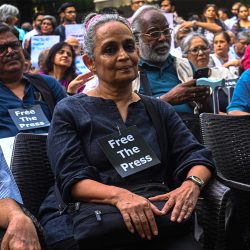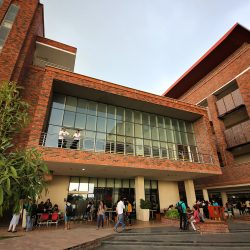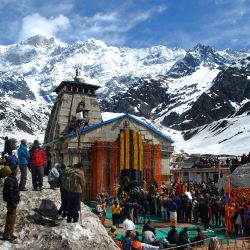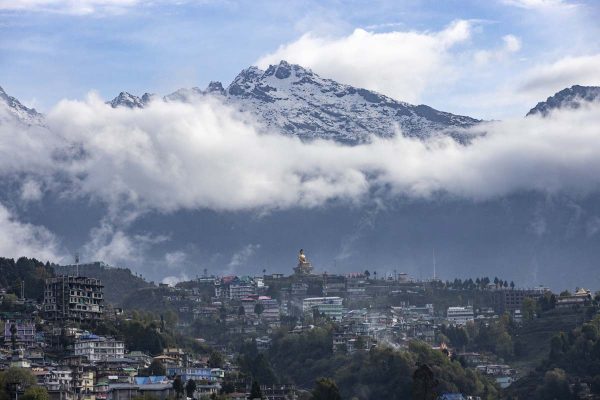
Teona Tsintsadze/Getty images
In India, Big Brother is watching
Last month, journalist Anand Mangnale woke to find a disturbing notification from Apple on his mobile phone: “State-sponsored attackers may be targeting your iPhone.” He was one of at least a dozen journalists and Indian opposition politicians who said they had received the same message. “These attackers are likely targeting you individually because of who you are and what you do,” the warning read. “While it’s possible this is a false alarm, please take it seriously.”
Mangnale is an editor at the Organized Crime and Corruption Reporting Project, a global non-profit media outlet. In August, he and his co-authors Ravi Nair and NBR Arcadio published a detailed inquiry into labyrinthine offshore investment structures through which the Adani Group — an India-based multibillion-dollar conglomerate with interests in everything from ports, infrastructure and cement to green energy, cooking oil and apples — might have been manipulating its stock price. The documents were shared with both Financial Times and The Guardian, which also published lengthy stories alleging that the Adani Group appeared to be using funds from shell companies in Mauritius to break Indian stock market rules.
Mangnale’s phone was attacked with spyware just hours after reporters had submitted questions to the Adani Group in August for their investigation, according to an OCCRP press release. Mangnale hadn’t sent the questions, but as the regional editor, his name was easy to find on the OCCRP website.
OCCRP stated in a press release that Mangnale’s phone was attacked with spyware just hours after it submitted questions to the Adani Group in August for its report. Mangnale hadn’t sent the questions, but as the regional editor, his name was easy to find on the OCCRP website.
Gautam Adani, the Adani Group’s chairman and the second richest person in India, has been close to Indian Prime Minister Narendra Modi for decades. When Modi was campaigning in the 2014 general elections, which brought him to power with a sweeping majority, he used a jet and two helicopters owned by the Adani Group to crisscross the country. Modi’s perceived bond with Adani as well as with Mukesh Ambani, India’s richest man — all three come from the prosperous western Indian state of Gujarat — has for years given rise to accusations of crony capitalism and suggestions that India now has its own set of Russian-style oligarchs.
The Adani Group’s supposed influence on Modi is a major campaign issue for opposition parties, many of which are coming together in a coalition to take on the ruling Bharatiya Janata Party in the 2024 general election. According to Rahul Gandhi — leader of the opposition Congress party and scion of the Nehru-Gandhi dynasty, which has provided three Indian prime ministers — the Adani Group is so close to power it is practically synonymous with the government. He said Apple’s threat notifications showed that the government was hacking the phones of politicians who sought to expose Adani and his hold over Modi.
Mahua Moitra, a prominent opposition politician and outspoken critic of Adani, reported that she had also received the warning from Apple to her phone. She posted on X: “Adani and PMO bullies — your fear makes me pity you.” PMO stands for the prime minister’s office.
Mangnale, referring to the opposition’s allegations, told me that there was only circumstantial evidence to suggest that the Apple notification could be tied to the Indian government. As for his own phone, a forensic analysis commissioned by OCCRP did not indicate which government or government agency was behind the attack, nor did it surface any evidence that the Adani Group was involved. But the timing raised eyebrows, as the Modi government has been accused in the past of using spyware on political opponents, critical journalists, scholars and lawyers.
In 2019, the messaging service WhatsApp, owned by Meta, filed a lawsuit in a U.S. federal court against the Israel-based NSO Group, developers of a spyware called Pegasus, in which it was revealed that the software had been used to target Indian journalists and activists. A year later, The Pegasus Project, an international journalistic investigation, reported that the phone numbers of at least 300 Indian individuals — Rahul Gandhi among them — had been slated for targeting with the eponymous weapons-grade spyware. And last year, The New York Times reported that Pegasus spyware was included in a $2 billion defense deal that Modi signed in 2017, on the first ever visit made by an Indian prime minister to Israel. In November 2021, Apple sued NSO too, arguing that in a “free society, it is unacceptable to weaponize powerful state-sponsored spyware against those who seek to make the world a better place.”
What is happening to Mangnale is the most recent iteration of a script that has been playing out for the last nine years. India’s democratic regression is evident in its declining scores in a variety of international indices. In the latest World Press Freedom Index, compiled by Reporters Without Borders, India ranks 161 out of 180 countries, and its score has been declining sharply since 2017. According to RSF, “violence against journalists, the politically partisan media and the concentration of media ownership all demonstrate that press freedom is in crisis.”
By May next year, India will hold general elections, in which Modi is expected to win a third consecutive five-year term as prime minister and further entrench a Hindu nationalist agenda. Since 2014, as India has become a strategic potential counterweight to runaway Chinese power and influence in the Indo-Pacific region, Modi has reveled in being increasingly visible on the global stage. Abroad, he has brandished India’s credentials as a pluralist democracy. The mounting criticism in the Western media of his authoritarian tendencies and Hindu chauvinism has seemingly had little effect on India’s diplomatic standing. Meanwhile at home, Modi has arguably been using — perhaps misusing — the full authority of the prime minister’s office to stifle opposition critics.
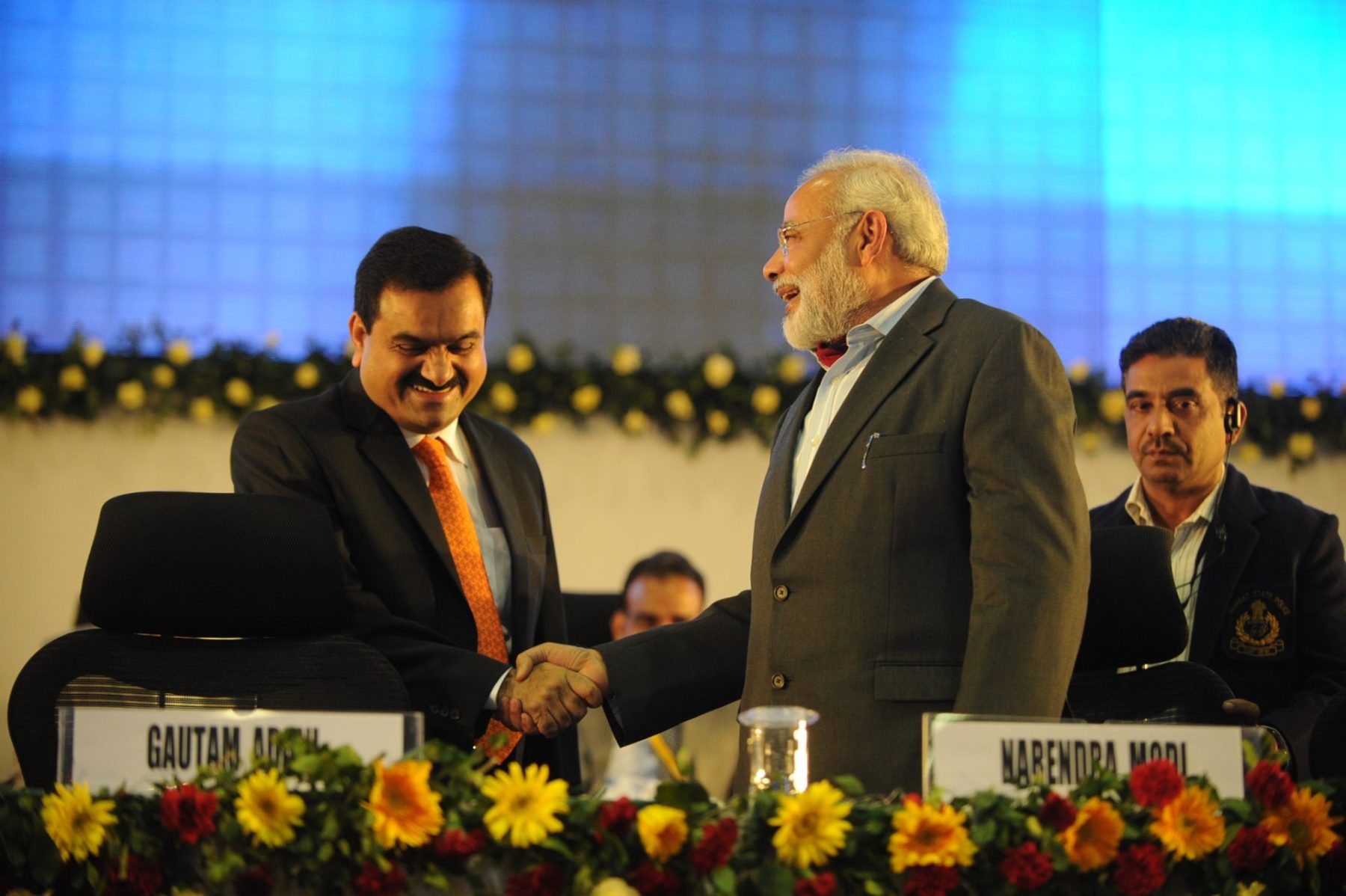
The morning after Apple sent out its warning, there was an outpouring of anger on social media, with leading opposition figures accusing the government of spying. Apple, as a matter of course, says it is “unable to provide information about what causes us to issue threat notifications.” The logic is that such information “may help state-sponsored attackers adapt their behavior to evade detection in the future.” But the lack of information leaves a gap that is then filled by speculation and conspiracies. Apple’s circumspect message, containing within it the possibility that the threat notification might be false altogether, also gives governments plausible deniability.
Right on cue, Ashwini Vaishnaw, India’s minister of information and technology, managed in a single statement to claim that the government was concerned about Apple’s notification and would “get to the bottom of it” while also dismissing surveillance concerns as just bellyaching. “There are many compulsive critics in our country,” Vaishnaw said about the allegations from opposition politicians. “Their only job is to criticize the government.” Lawyer Apar Gupta, founder of the Internet Freedom Foundation, described Vaishnaw’s statements as an attempt to “trivialize or misdirect public attention.”
Finding that his phone had been attacked by spyware was not the only example of Mangnale being targeted after OCCRP published its investigation into the Adani Group’s possibly illegal stock manipulation. In October, the Gujarat police summoned Mangnale and his co-author Ravi Nair to the state capital Ahmedabad to question them about the OCCRP report. Neither journalist lives in the state, which made the police summons, based on a single complaint by an investor in Adani stocks, seem like intimidation. It took the intervention of India’s Supreme Court to grant both journalists temporary protection from arrest.
Before the Supreme Court, the well-known lawyer Indira Jaising had argued that the Gujarat police had no jurisdiction to arbitrarily summon Mangnale and Nair to the state without informing them in what capacity they were being questioned. It seemed, she told the court, like a “prelude to arrest” and thus a violation of their constitutional right to personal liberty. A week later, the Supreme Court made a similar ruling to protect two Financial Times correspondents based in India from arrest. The journalists, in Mumbai and Delhi, had not even written the article based on documents shared by the OCCRP, but were still summoned by police to Gujarat. On December 1, the police are expected to explain to the Supreme Court why they are seemingly so eager to question the reporters.
While the mainstream television news networks in India frequently and loudly debate news topics on air, there is little coverage of the pressure that the Indian government puts on individuals who try to hold the government to account. Ravish Kumar, an esteemed Hindi-language journalist, told me that few people in India were aware of the threat to journalists and opposition voices in Modi’s India. “When people hear allegations made by political figures such as Rahul Gandhi, they can be dismissed as politics rather than fact. There is no serious discussion of surveillance in the press,” he said.
Kumar once had a substantial platform on NDTV, a respected news network that had built its reputation over decades. In March this year, the Adani Group completed a hostile takeover of NDTV, leading to a series of resignations by the network’s most recognizable anchors and editors, including Kumar. NDTV is now yet another of India’s television news networks owned by corporations that are either openly friendly to the Modi government or unwilling to jeopardize their other businesses by being duly critical.
Nowadays, Kumar reports for his personal YouTube channel, albeit one with about 7.8 million subscribers. A documentary about his lonely fight to keep reporting from India both accurately and skeptically was screened in cinemas across the U.K. and U.S. in July.
According to Kumar, journalists and critics are naturally fearful about the Indian government’s punitive measures because some have ended up in prison on the basis of dubious evidence found on their phones and laptops. Most notoriously, a group of reputed academics, writers and human rights activists were accused of inciting riots in 2018 and plotting to assassinate the prime minister. Independent analysts hired by The Washington Post reported that the electronic evidence in the case was likely planted.
Some of this possibly planted evidence was found on the computer of Stan Swamy, an octogenarian Jesuit priest who was charged with crimes under India’s anti-terror law and died in 2021 as he awaited trial. Swamy suffered from Parkinson’s disease, which can make everyday actions like eating and drinking difficult. While in custody, he was treated so poorly by the authorities that he had to appeal for a month before he was given a straw to make it easier for him to drink.
The threat of arrest hangs like a Damoclean sword above the heads of journalists like Mangnale who dare to ask questions of power and investigate institutional corruption. Despite the interim stay on his arrest, Mangnale still faces further court proceedings and the possibility of interrogation by the Gujarat police. In the words of Drew Sullivan, OCCRP’s publisher: “The police hauling in reporters for vague reasons seems to represent state-sanctioned harassment of journalists and is a direct assault on freedom of expression in the world’s largest democracy.”
The story you just read is a small piece of a complex and an ever-changing storyline that Coda covers relentlessly and with singular focus. But we can’t do it without your help. Show your support for journalism that stays on the story by becoming a member today. Coda Story is a 501(c)3 U.S. non-profit. Your contribution to Coda Story is tax deductible.




